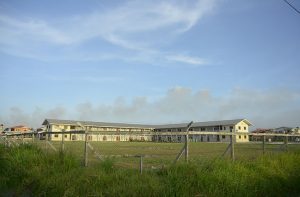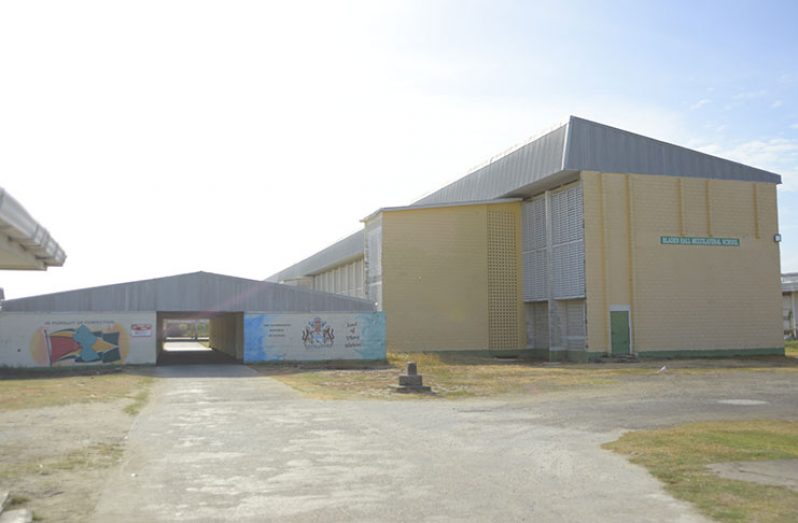THERE are major rehabilitation and expansion projects planned for schools in Region Four (Demerara-Mahaica) in 2019, while there are plans in the making for schools in the Region to be outfitted with ‘smart’ features in 2020.
The initiatives are being spearheaded by the Region Four Regional Democratic Council (RDC) through funding from the government, which allocated the Council some $7.2B for the year.
High on the agenda is the Bladen Hall Multilateral School, which Regional Executive Officer (REO) Pauline Lucas stated is in great need of rehabilitation.
There were minor works done to the building in the past, but this is the first time since it was built that the school will undergo major rehabilitation.
“The school was more or less neglected to a large extent. Remember those schools were built way back in the late 70s, so we recognised that there is need for major rehabilitation,” Lucas said.
Funding received for the rehabilitation is in the tune of $70M, and will cater for mostly internal rehabilitation as well as the repainting of the building.
Meanwhile, the tender for the project is currently being evaluated, and will soon be followed by the awarding of a contract by the National Procurement and Tender Administration Board (NPTAB).
“We’re in evaluation stage at the moment, and I trust that within another two weeks or so, the projects will be awarded,” the REO stated.

Beginning next year, Lucas revealed, it is hoped that all buildings constructed by the RDC will be equipped with ‘smart’ features, such as automatic lights, sinks and more.
“All of our schools, the ones constructed from next year, we will be asking for those features. Gradually, we’ll be trying to change the existing buildings to take into account some sense of ‘smartness’,” she said, adding:
“In terms of lighting, we’re trying to put in these motion-sensor lights so when you go in the building it works with motion. We’re trying to do that to other buildings, but that will take a phase-out period. But, all new buildings to be constructed from next year definitely we’ll be taking that into account.”
The REO said the RDC has noticed that when children use the sinks at school, they oftentimes forget to turn off the taps, which contributes to water wastage.
The RDC believes that the installation of motion-sensor taps is a solution, and will therefore begin a pilot project to test these smart features in schools come 2020.
Meanwhile, over at the New Diamond Grove Scheme, there is only one primary school, and, with the increasing amount of families now residing in the area, the school has seen a significant hike in the number of pupils in attendance.
“The school of itself, right now, the last count we had was over 100 children. That’s to the extent that we’re using the library as a classroom, and there are two other rooms that weren’t meant to be classrooms that are being used as classrooms. Yet, all the children in the catchment area have not been able to come to that school, because of the overcrowding,” Ms Lucas explained.
As such, the RDC has decided to capitalise on the school’s large compound, and will be expanding the building to cater for the increase in children.
This year, a two-storey building will be constructed with some 10 classrooms to cater for an approximate 300 additional children.
The project will cost some $58M, and is being funded by the government.





.jpg)








